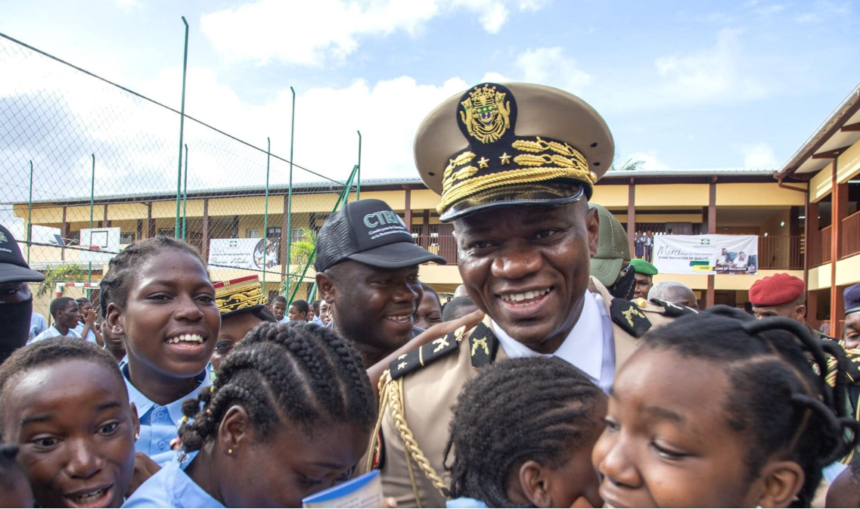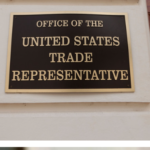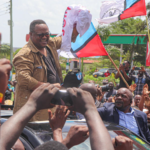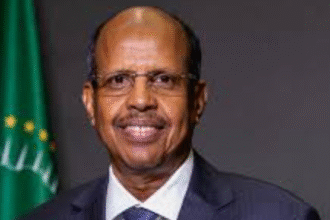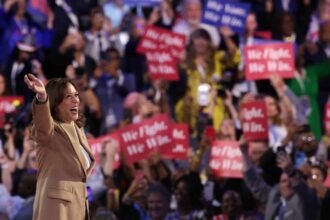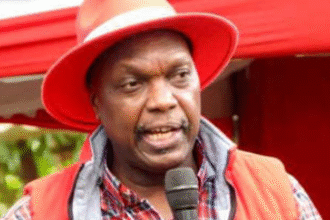By Peter Halima
Libreville, Gabon – Gen. Brice Oligui Nguema, the military leader who orchestrated the 2023 coup that ended the Bongo family’s near-60-year rule in Gabon, has been declared the winner of Saturday’s presidential election with a resounding 90% of the vote, according to provisional results announced by Interior Minister Hermann Immongault.
The announcement solidifies Oligui Nguema’s grip on power nearly two years after he led the ouster of President Ali Bongo, whose family had been at the helm of the oil-rich nation since 1967.
“Brice Clotaire Oligui Nguema is elected [president] by absolute majority of votes cast, with 575,222 votes,” Immongault declared.
Oligui Nguema, 50, faced seven other candidates, including former Prime Minister Alain Claude Bilie-by-Nze, who served under the Bongo regime, and two figures from the former ruling PDG party, Stéphane Germain Iloko and Alain Simplice Boungouères. Bilie-by-Nze, considered Oligui Nguema’s main challenger, garnered just over 3% of the votes.
The election saw a high voter turnout, with over 70% of registered voters participating. Authorities and some observers have hailed the process as transparent and peaceful. However, concerns have been raised regarding potential irregularities.
Bilie-by-Nze expressed specific worries about reports of unmarked ballot papers not being secured in some locations, raising fears of potential ballot box stuffing. There were also reports of delayed voting at some polling stations and voters struggling to find their designated voting locations on the electoral roll.
Prior to the election, critics argued that the new constitution and electoral code were designed to favor Oligui Nguema, paving the way for his victory. Furthermore, the exclusion of some prominent opposition figures who could have posed a significant political challenge has drawn criticism.
Oligui Nguema’s victory grants him a seven-year mandate and the authority to address the corruption and mismanagement that plagued the Bongo era. As the former commander of the elite Republican Guard, he has proven popular with a population eager to break free from dynastic rule. He has pledged to eradicate the ills that have tarnished Gabon’s reputation.
Despite its wealth in oil and timber, Gabon, a central African nation of just 2.5 million people, faces significant challenges. Approximately 35% of the population lives below the poverty line, struggling to survive on less than $2 a day. The new president faces the daunting task of translating the nation’s resources into tangible improvements for the lives of ordinary Gabonese citizens.


